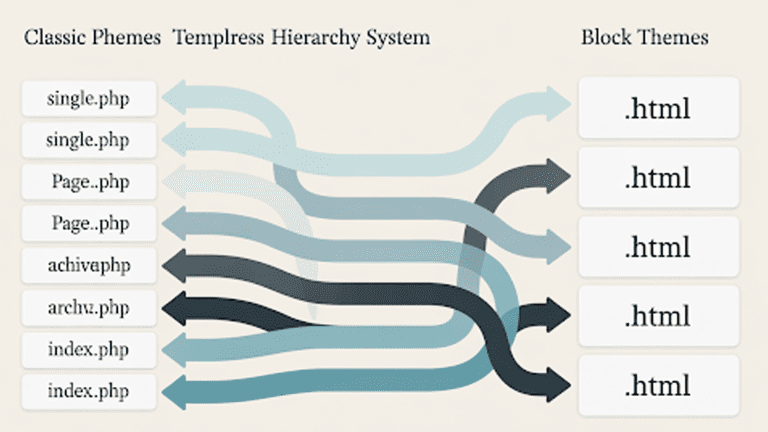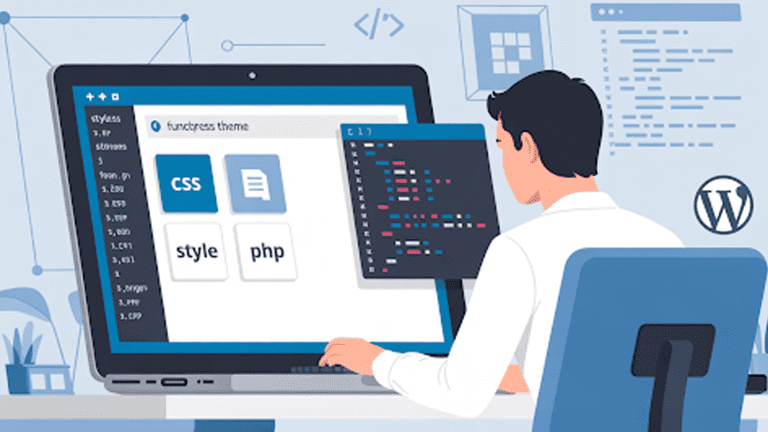Every website or app needs a place to keep its data safe, fast, and easy to reach. But to get this you need to spend too much bucks, that’s why most smart teams now go for private cloud servers
They’re quick, secure, and grow with you when your workload does, all while costing way less than traditional setups or VPS.
If you’re thinking about moving your stuff to the cloud, you’re in the right spot. We’ve tested and picked some solid private cloud options you can trust without breaking a sweat.
What Is the Purpose of a Private Cloud Server?
A private cloud server gives a business its own secure and dedicated cloud space. It keeps data safe, performance stable, and everything fully under your control.
Main purposes of a private cloud server:
- Used by one organization only, not shared with others
- Offers full control over data, setup, and security
- Allows customization to match business needs
- Ensures data privacy and compliance with strict rules
- Provides steady performance without outside traffic affecting it
In short, it’s the best choice for companies that want their own cloud with the security of private servers and the flexibility of modern cloud tech.
List of Our tested Top Private Cloud Server Providers (2025)
The internet is full of cloud server providers, but not all deliver what they promise. Before listing our picks, we tested several and shortlisted only the top ones you can truly rely on.
VMware Cloud (Broadcom)
VMware Cloud is widely used for virtualization and hybrid setups. It helps companies manage both private and public workloads in one place.
- Works smoothly with existing VMware tools
- Supports hybrid infrastructure
- Offers strong security and control
- Scales easily for enterprise use
Microsoft Azure Stack
Azure Stack brings Microsoft Azure services to on-premise environments. It’s best for businesses that already rely on Microsoft tools.
- Same interface as Azure
- Supports hybrid and private use
- Good for compliance and data control
- Integrated with Microsoft ecosystem
Amazon Web Services (AWS Outposts / Dedicated Cloud)
AWS Outposts allows you to run AWS infrastructure locally while staying connected to the main AWS cloud.
- Local data processing with AWS tools
- Consistent APIs and management system
- Works for regulated industries
- Backed by AWS reliability
Google Distributed Cloud (GDC)
Google Distributed Cloud focuses on edge computing and secure local data handling. It’s strong in analytics and AI integration.
- Designed for edge and hybrid setups
- Works well for compliance-heavy sectors
- Built-in AI and data services
- Supports fast local processing
IBM Cloud Private
IBM Cloud Private provides a dedicated cloud with enterprise-grade security and governance.
- Suitable for industries handling sensitive data
- Supports hybrid and private deployments
- Includes AI and automation tools
- Strong compliance features
Oracle Cloud Infrastructure (OCI Dedicated Region)
OCI Dedicated Region brings the full Oracle Cloud stack into your own data center, giving complete control without losing cloud flexibility.
- Complete Oracle services on-premise
- Optimized for large-scale workloads
- Good for database-heavy environments
- High security and compliance
Dell APEX Cloud Services
Dell APEX offers private and hybrid cloud setups that are easy to deploy and scale. It is ideal for businesses that prefer on-prem control with cloud-style management.
- Simple setup and scaling
- Centralized management tools
- Flexible deployment options
- Supported by Dell enterprise solutions
HPE GreenLake
HPE GreenLake brings the cloud experience into your data center, with resources delivered as a service and billed by usage.
- Cloud-like experience on-site
- Pay only for what you use
- Easy resource monitoring
- Works for hybrid models
Red Hat OpenShift / OpenStack
Red Hat provides open-source tools for companies that want to build and manage their own private cloud without vendor lock-in.
- Supports containers and Kubernetes
- Open-source flexibility
- Strong developer support
- Cost-effective for IT teams
Nutanix Cloud Platform
Nutanix simplifies cloud management by combining storage, compute, and networking in one system. It’s popular for businesses seeking easy scalability without complex setup.
- Simple to manage
- Scales efficiently
- Good data protection
- Works with hybrid deployments
What Are the Benefits of Private Cloud Servers
Private cloud servers give businesses the control and confidence that shared environments can’t match. They’re built for companies that want performance, privacy, and reliability in one place.
- High security and compliance: Data stays in a controlled environment with strict access rules.
- Full data control and customization: You decide how storage, software, and security work, with full flexibility to match business needs.
- Predictable performance: Dedicated resources mean steady speed and uptime, even during heavy workloads.
- Better for sensitive workloads: Perfect for sectors like finance, healthcare, or government where data protection is a must.
- Easier integration with legacy systems: Works smoothly with existing on-prem infrastructure and internal apps.
- Long-term cost efficiency: Though setup costs more upfront, it often reduces long-term spending through better resource use and control.
How Much Does a Private Cloud Server Cost?
Private cloud pricing varies based on how it’s built and managed. Here’s a quick breakdown:
| Cost Type | What It Includes | Typical Range / Notes |
| Setup Cost | Hardware, software, and licensing | One-time cost from $10,000 to $100,000+ depending on size |
| Management Cost | Maintenance, monitoring, updates, and support | If managed by provider around $1,000–$10,000/month |
| Self-Hosted Cost | Power, IT staff, and upkeep | Lower monthly spend but needs in-house expertise |
| Enterprise Monthly Range | Combined ongoing expenses | Typically $5,000–$25,000/month for medium-to-large businesses |
In short: Private cloud is a bigger upfront investment, but it pays off in security, control, and performance over time.
How We Tested the Cloud Server Providers
We didn’t just take the provider’s word for it! We tested each one ourselves to see how it actually performs in real-world conditions. Our goal was to find which private cloud services truly deliver on speed, security, and ease of management.
Here’s how we did it:
- Performance Check: We ran sample workloads to test speed, uptime, and response times under different conditions.
- Security Review: Verified compliance standards, data protection layers, and access control systems.
- Ease of Use: Evaluated dashboard design, setup process, and support response time.
- Scalability Test: Checked how easily each system could scale resources up or down.
- Cost vs. Value: Compared pricing with actual performance to see who offers real value, not just a “big promise”.
This helped us shortlist only the providers that proved reliable, secure, and scalable.
Private Cloud vs Public vs Hybrid Cloud
Not all clouds are built the same. Each model serves a different business need, depending on how much control, cost flexibility, and scalability you’re after.
| Cloud Type | How It Works | Control | Scalability | Cost | Best For |
| Private Cloud | Dedicated servers and infrastructure for one organization | Full control | Moderate, depends on setup | Higher upfront, stable long-term | Businesses needing strict security and compliance |
| Public Cloud | Shared infrastructure managed by third-party providers | Limited control | Highly scalable | Pay-as-you-go, lower entry cost | Startups or companies with dynamic workloads |
| Hybrid Cloud | Mix of private and public environments working together | Balanced control | Flexible, can scale both ways | Varies by mix | Organizations needing both security and flexibility |
FAQs
What are examples of private cloud servers?
Some top private cloud solutions include VMware Cloud, Microsoft Azure Stack, AWS Outposts, Google Distributed Cloud, and HPE GreenLake. Each provides dedicated, secure environments for organizations.
Is a private cloud server secure from hackers?
Yes, private clouds offer high security since only your organization can access the environment. Pure Website Design can further strengthen your cloud setup with advanced protection and compliance support.
What’s the difference between private and hybrid cloud?
Private cloud serves one organization exclusively, while hybrid cloud combines private and public environments for flexibility and scalability.
Can I build my own private cloud?
Yes, but it requires hardware, software, and skilled management. Pure Website Design can handle the entire process. From setup to optimization, so you can focus on running your business.
How to create or set up a private cloud server?
You’ll need to configure servers, install virtualization software, and set up networking and security layers.
What are the Big Three cloud providers?
The top three are Amazon Web Services (AWS), Microsoft Azure, and Google Cloud Platform (GCP). Each offers public, hybrid, and private cloud options.
What are the disadvantages of cloud server providers?
They can be costly, complex to manage, and sometimes limit customization. That’s why many businesses use Pure Website Design to find the most reliable and balanced cloud solution.
How many types of cloud server providers are there?
There are three main types: private, public, and hybrid. Each designed for different levels of control, cost, and performance.
Still Confused? Let Pure Website Design Sort It Out for You!
Many of our clients ask the same thing! “Which cloud server is actually right for my business? And honestly, that’s a fair question. Not everyone has the time (or the tech background) to compare all the options out there.
At Pure Website Design, we take the guesswork out of it. Our team reviews your business model, technical needs, and long-term goals. After a full evaluation, we recommend the best private cloud solution that fits your setup.




